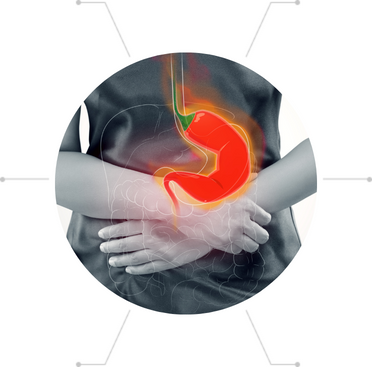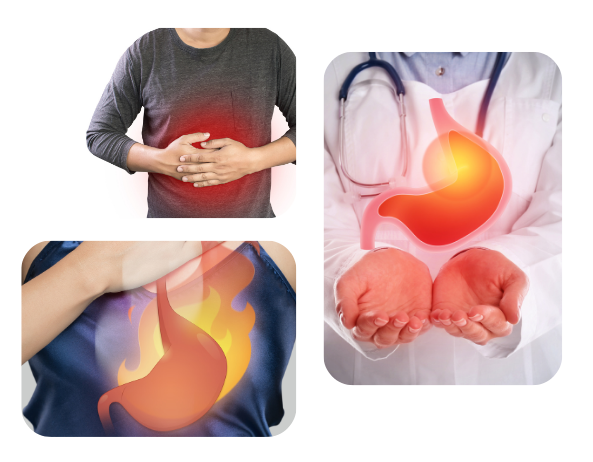Menu
- AyurVAID Pharmacy
Crohn’s disease is a chronic inflammatory bowel disease affecting the ileum and large intestine, causing diarrhea, abdominal pain, abscesses, and fistulas. The disease can affect any part of the digestive tract. It often affects the lower part of the small intestine called the ileum and the large intestine or both. Both Crohn’s and IBD are influenced by immune reactions to the intestinal tract. Ayurveda refers to Crohn’s Disease as a type of Grahani, a condition caused by excessive Pitta Dosha aggravation leading to inflammation. AyurVAID offers a patient-centric approach and root-cause Ayurveda treatment protocols to effectively treat IBD and Crohn’s Disease.


AyurVAID’s classical Ayurveda treatment protocols address the root cause of diseases, including Crohn’s Disease. Ayurveda treatment of Crohn’s Disease includes an integrative approach involving in-depth symptom assessment, history taking, and understanding of the patient’s condition. Ayurveda doctors at AyurVAID provide advice on ergonomics, nutrition, and lifestyle changes, aiming to improve the patient’s quality of life through outcome-focused herbal medications, personalized protocols, and lifestyle consultations.


Bengaluru – Domlur Bengaluru – Aster CMI, Hebbal Bengaluru – HRBR Layout Bengaluru – Sri Shankara, Basavangudi Bengaluru – Bannerghatta Road Bengaluru – ArekereDelhi – New DelhiKochi – Kadavanthara Uttarakhand-Kalmatia, AlmoraChennai – Greams Road Chennai – Vanagaram Chennai – Kotturpuram Hyderabad – Somajiguda
Ayurveda Parasurgery Autoimmune Disorders Blood Disorders Cardiology Dermatology Endocrinology Ear-Nose Throat-Mouth Elder-Care Gastrointestinal Gynaecology Integrative Oncology Infectious-Diseases Liver-Hepato-Biliary-Care Mental Health and De-addiction Male-Reproductive-Disorders Nephrology Neurological-Disorders Orthopaedic Disorders Ophthalmology Obstetrics-Integrative Preventive-Health-Wellbeing Pulmonology Pediatric-Development-Disorder Sleep-Disorders
Any use of this site constitutes your agreement to the Terms and Conditions, Privacy Policy and Cancellation and Refund Policy
©2025 Apollo AyurVAID Hospitals. All rights reserved.
Popular Searches: DiseasesTreatmentsDoctorsHospitalsWhole person careRefer a patientInsurance